密封圈故障为何代价高昂
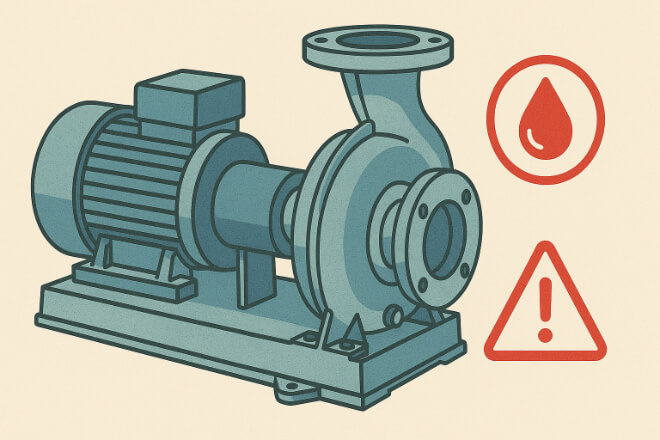
计划外停机 → 生产停止,导致收入损失。
昂贵的维修 → 泵或压缩机可能需要更换零件。
环境风险 → 泄漏可能导致溢出或污染。
安全隐患 → 高压泄漏威胁着工人和设备。
更高的生命周期成本 → 频繁的故障会增加长期开支。
碳化钨密封环的常见失效模式
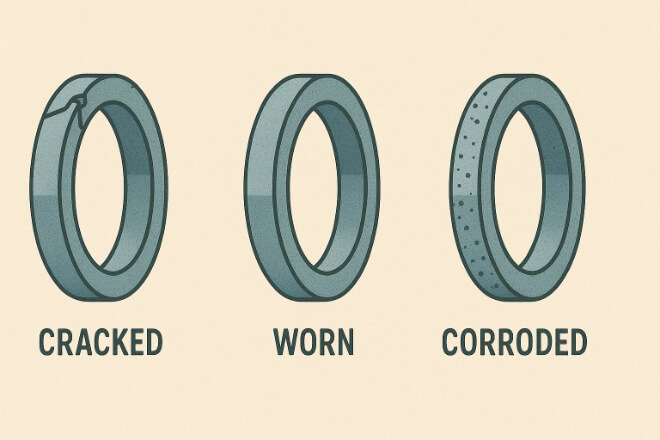
1). 磨料流体造成的磨损
原因:流体中的泥浆、沙子或碎屑摩擦密封表面。
影响:快速侵蚀并降低密封效率。
预防:使用适当的过滤,选择更硬的等级,或使用保护涂层。
2). 热冲击或开裂
原因:冷热流体之间的温度快速变化。
影响:出现裂缝,导致泄漏。
预防:允许温度逐渐转变并确保正确的热膨胀余量。
3).腐蚀损伤
原因:腐蚀性化学物质或海水侵蚀粘合剂材料。
影响:表面凹陷、材料损失和泄漏。
预防:对于富含化学物质的液体,请选择镍结合碳化钨。
4). 安装不良或未对准
原因:装配过程中出现划痕、扭矩不均匀或安装不正确。
影响:磨损不均匀、泄漏和过早失效。
预防:培训技术人员、遵循制造商指南并检查安装表面。
5). 振动和机械冲击
原因:泵或压缩机在高振动或压力变化下运行。
后果:密封边缘碎裂或断裂。
预防:使用钴结合碳化钨来抗冲击并保持设备平衡。
6). 润滑失效
原因:润滑不足或干运转。
后果:过热和表面损坏。
预防:保持适当的液位并定期检查润滑系统。
碳化钨相对于其他材料的优势
| 特征 | 碳化钨 | 陶瓷制品 | 钢 |
|---|---|---|---|
| 耐磨性 | 非常适合磨料 | 缓和 | 贫穷的 |
| 耐腐蚀 | 高(镍等级) | 非常好 | 低的 |
| 韧性 | 高,抗冲击 | 低、脆 | 缓和 |
| 热稳定性 | 耐高/低温性能优异 | 好的 | 缓和 |
| 使用寿命 | 持久 | 缓和 | 短的 |
避免故障的最佳实践
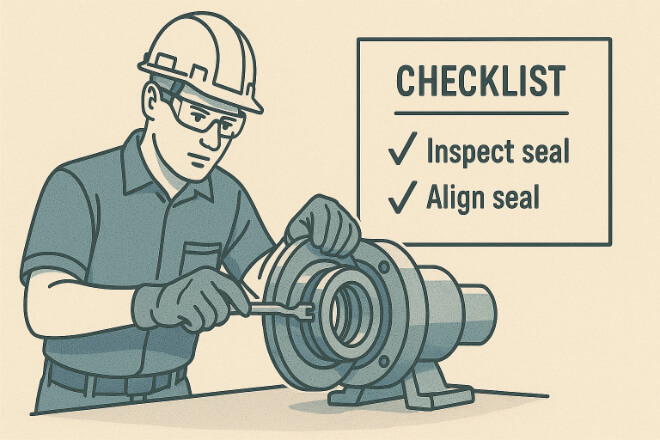
使材料与环境相匹配 → 镍结合剂可用于化学品,钴结合剂可用于冲击。
控制操作条件 → 防止干转、剧烈振动和快速的温度变化。
定期检查密封件 → 发现磨损或开裂的早期迹象。
培训员工 → 正确的安装和处理可以减少损坏。
与可靠的供应商合作 → 确保正确的规格和质量保证。
成本和投资回报率考虑因素
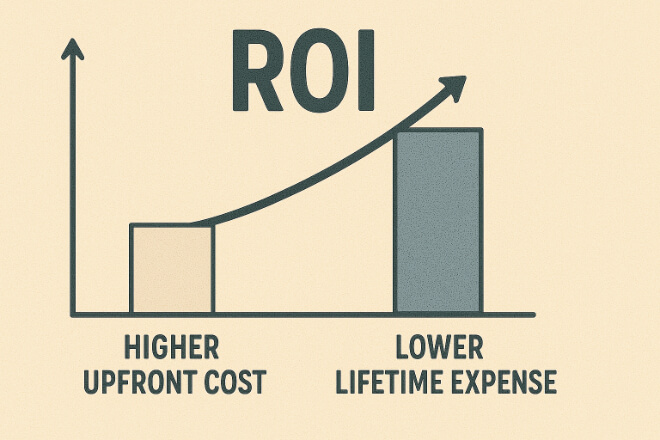
虽然碳化钨密封环的初始成本较高:
它们可以延长使用寿命,从而减少停机时间。
通过减少更换次数,他们降低了维护成本。
它们保护设备,防止代价高昂的故障。
随着时间的推移,它们比更便宜的替代品提供更好的投资回报率。
环境和安全效益
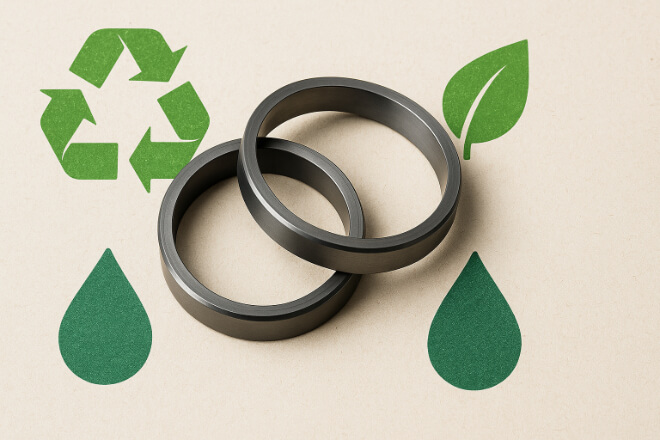
防止泄漏 → 保护生态系统和工人。
可回收材料 → 磨损的戒指可以回收并重新使用。
提高效率 → 无泄漏系统可节省能源和资源。
决策者的关键要点

大多数碳化钨故障源于磨损、热冲击、腐蚀或错位。
正确的选择、安装和维护可避免代价高昂的停机。
投资优质材料和培训可以带来长期的节省。
碳化钨密封环是要求苛刻的工业环境的最佳选择。
结论
了解故障模式可以帮助决策者有效地使用碳化钨密封环。
通过选择正确的等级、维持操作条件并遵循最佳实践,行业可以实现无泄漏、可靠的性能。
对于石油、天然气、电力、化工或海洋作业中的关键系统,碳化钨是一项明智的投资,可确保安全、高效和可持续性。
如果您想了解任何公司的更多详细信息,请随时 联系我们。
